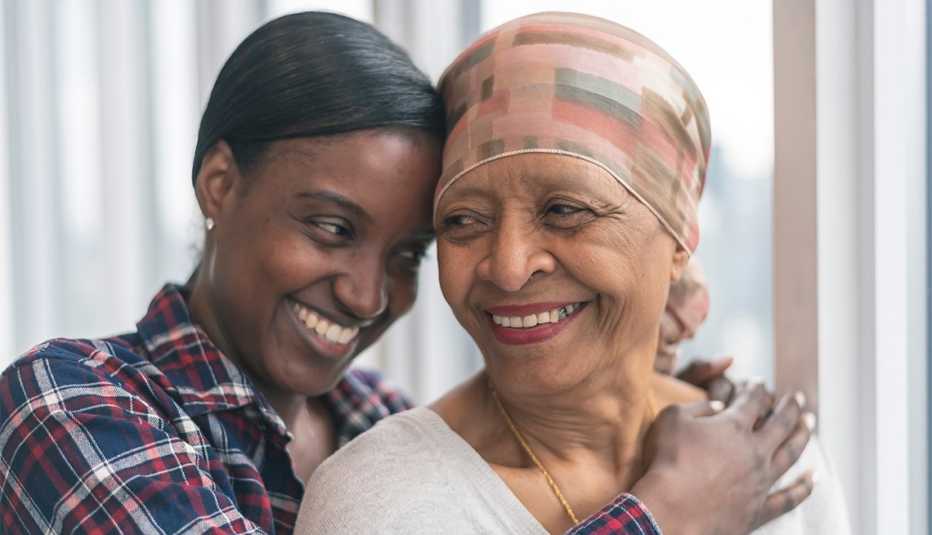Staying Fit


Promising breakthroughs in detection and treatment have turned cancer from a likely death sentence into an illness that often can be controlled or cured.
More than 15.5 million Americans with a history of cancer were alive on Jan. 1, 2016, according to the American Cancer Society's Cancer Facts & Figures 2019 report. Most were diagnosed many years ago and have no current signs of the disease.


AARP Membership— $12 for your first year when you sign up for Automatic Renewal
Get instant access to members-only products and hundreds of discounts, a free second membership, and a subscription to AARP the Magazine.
More people living with cancer means that more family members are serving as caregivers. For all the progress made in fighting the disease, it still can be a frightening diagnosis for patients and the people who love them, and the journey through treatment is fraught with emotional and logistical challenges as well as medical ones.
Here are five steps to help you navigate cancer caregiving and some quick tips for putting them in place.
1. Face the problem
You and your loved one may find yourselves suddenly trying to decode new terminology, process the diagnosis and evaluate how it will change your lives. Whom do you tell, and how much do you tell them?
All of this can feel overwhelming. Information and communication are the keys to coping.

































































More From AARP
Family Caregivers Need More Training for Medical Tasks
Study shows caregivers aren't getting adequate instruction
Caring For a Loved One at Home
Tips for keeping an older family member comfortable and safe, in their home or yoursTips for Long-Distance Caregiving
Steady communication and building a trusted team are crucial